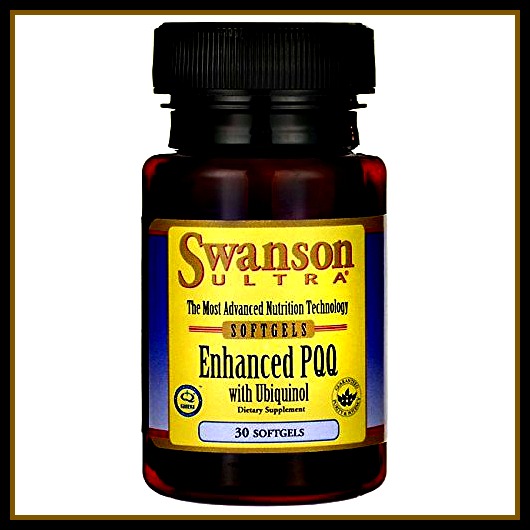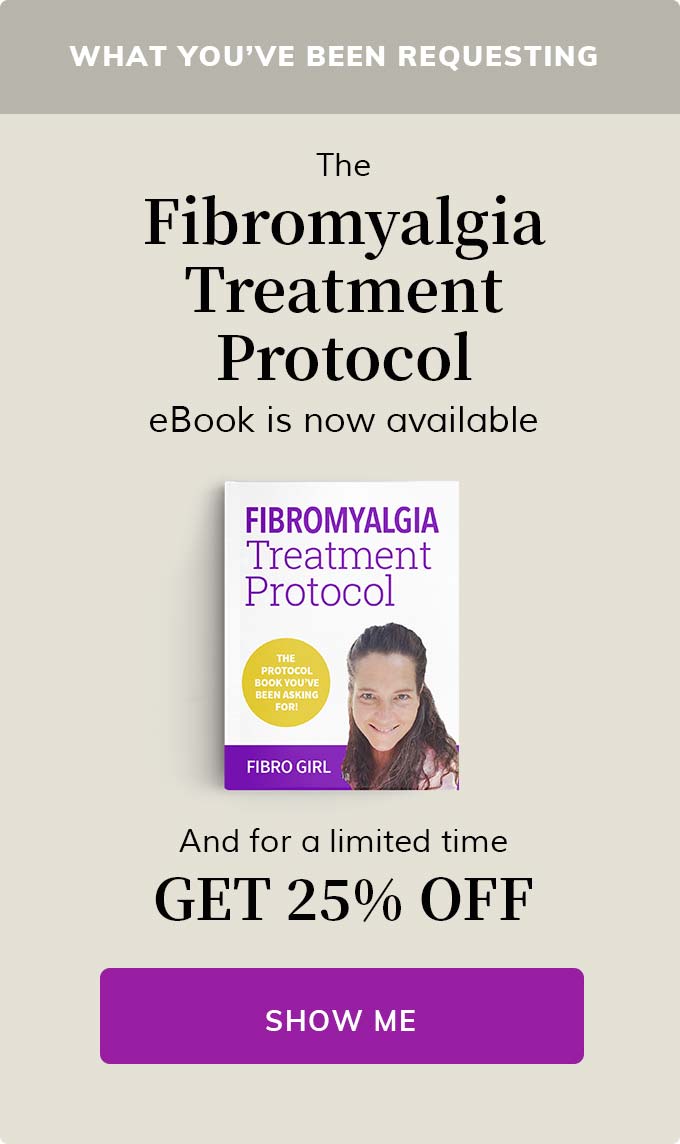Fibromyalgia Research: Cancer Study Offers
Hope For Fibromyalgia Victims
I have spent years (and much pain) in "trial and error" fibromyalgia research to
develop the elements of the protocol I have presented here on my website.
Fibro
is such a complex syndrome that it is difficult for fibromyalgia research to make a “cause and effect”
finding for each of the many symptoms.
However, my co-condition of MCS (Multiple Chemical Sensitivity) makes me
hyper sensitive to even, what most people would call, “mild toxins”.
And, I have concluded that this “toxic load”
can and does damage the mitochondria. Consequently, I have long believed that
our mitochondria is the place to start with clients (and myself) to reduce the
pain of exercise and overcome the associated “fatigue factor”, a critical pathway to more good days than bad.
On my Fibromyalgia Supplements page, I emphasize this point. And, I emphasize the essential need for Ubiquinol CoQ 10 to aid in repairing and increasing our mitochondria. As you will see in what follows, studies have confirmed my "trial and error" conclusions.
On
June 24, 2014 ProHealth.com reprinted a detailed summary of a 6 June 2014
scientific article by David C. Holzman entitled “When Cancer Treatment Packs a
Painful Punch” which was published on the Pain Research Forum. Holzman’s
article, which focused on “chemotherapy-induced
neuropathy research (sensory pain), puts the focus on mitochondria”. The ProHealth.com reprint of the summary
picked up on the potential connection to fibromyalgia research and
is entitled “Could Cancer Research Improve the Treatment of Widespread Pain in
Fibromyalgia?”
We are grateful to the author of this article, Marco, for seeing the connection to FMS. Further, we are grateful to a contributor, Cort Johnson, who added a section entitled “The ME/CFS and FM Connection” which ProHealth.com has graciously given me permission to reprint here. Before I include the reprint, I want to provide my own summary to emphasize some critical points and so you don’t have to look up the unfamiliar scientific/medical terms.
Fibromyalgia Research:
The FMS/CFS Connection To Cancer
Basically, the original article was about Chemotherapy-Induced Peripheral Neuropathy or CIPN (damage to peripheral sensory nerves). In cancer treatment the pain from CIPN can be so bad (patients choose death over treatment) that doctors have to limit both the chemo dose and the term of treatment even for the drugs that have high cure rates in the clinical trials.
In case you are not aware, there are a few drugs (and more on the way) that are so effective against certain cancers that the FDA is likely to give a fast-track approval because they literally cure a high percentage of patients. I have personal knowledge of this by way of a friend who had a very aggressive Stage 4 cancer that was treated with one of these drugs in a clinical trial. He is now cancer free. Fortunately, he did not suffer from CIPN pain but he did have the “fatigue” side effect, and it was quite debilitating.
Mitochondrial Damage/Dysfunction
What the two authors of the summary articles realized was the very great similarity between the pain mechanisms of the cancer patient's CIPN and those of us with FMS (and CFS). Fibromyalgia research has shown mitochondrial damage/dysfunction is present in both populations (cancer and FMS/CFS patients). If that damage occurs in the CNS (central nervous system), it could cause the hypersensitivity and widespread pain we FMS victims feel. More fibromyalgia research studies are needed in this area (CNS) to determine if this could be the basic “pain mechanism” of fibromyalgia.
Oxidative stress is also present in both populations (cancer patients and FM/CFS patients). This oxidative stress can damage mitochondria resulting in pain. The article also points out that “exercise” can cause initial higher levels of oxidative stress; however, in the case of FMS continuing to exercise will improve the levels of oxidative stress thus making exercise a viable option for anyone with fibromyalgia.
But What About CFS Sufferers?
At first, it would appear they are unable to condition their bodies due to this buildup of oxidative stress. However, CoQ 10 treatment significantly reduces fatigue and improves performance during exercise and thus may have potential in alleviating the exercise intolerance and exhaustion displayed by people with myalgic encepholamyletis/chronic fatigue syndrome (ME/CFS).
And, for those of us with FMS, administration of CoQ 10 improves the increased sensitivity to pain and quality of life in patients with fibromyalgia. It is an essential supplement for fibromyalgia.
 Essential Supplement for FMS and CFS
Essential Supplement for FMS and CFSThe evidence for the effectiveness of treatment of fibromyalgia and (ME/CFS) with CoQ 10 can be explained by its ability to improve oxidative stress and protect mitochondria. I talk about how Ubiquinol CoQ 10 is an essential supplement for FMS and CFS on my Fibromyalgia Supplements page and devote an entire page to CoQ10-Supplements. I recommend Swanson Enhanced Pqq with Ubiquinol.
I wanted to address those points since many of you who follow me here on this website, complain that exercise is not possible because of the pain. But now, fibromyalgia research has provided a scientific basis for a pain-free or tolerable-pain conditioning program that combines exercise with my recommendation for supporting your conditioning program with “essential" Ubiquinol CoQ 10 to protect your mitochondria (avoid pain) and provide the energy (avoid fatigue). Always start slow.
Exactly How Slow?
My webmaster likes the following analogy to emphasize “slow”: If you live in a residential neighborhood, Day 1 of your exercise program could consist of walking to your mailbox. Day 2, you walk to your next door neighbor’s mailbox. Day 3 you walk to the next mailbox just beyond your neighbor’s. And so on………and on. Get it? Slow, but always setting a goal slightly greater than your last workout for next time. Don’t be impatient; this is a lifestyle change.
In a few months time you will be feeling empowered and proud of yourself for pushing thru the barriers, and having many more good days than bad. Same goes for strength training, slow, safe and consistent will always be most effective. Our goal is to protect the fibro body and avoid injury while strengthening and increasing overall agility. Again, this is not about a false cure, this is about real conditioning that the body needs to create a stronger overall foundation.
Cancer Research Offers A Ray Of Hope
Again, I want to thank ProHealth.com for their permission to reprint the following portion of their article contributed by Cort Johnson, and both Johnson and Marco for their insight in connecting the cancer research to fibromyalgia research into FMS/CFS.
With the billions of dollars spent every year on cancer research, we may well begin to see large research resources applied to this issue in the world of cancer research. With “cure” on the tongues of so many cancer researchers, there’s no way they’re going to let this problem stand in their way. Our needed fibromyalgia research will benefit.
Authorized Reprint (By ProHealth.com):
“The ME/CFS and FM Connection"
Contributed By Cort Johnson
The finding that mitochondrial dysfunction resulted in spontaneous firing of the sensory neurons – which was associated with increased pain -was novel and surprised the investigators, but mitochondrial dysfunction has been putatively associated with both fatigue and pain in ME/CFS and FM.
Mitochondrial dysfunction has been found in the leukocytes and muscles of ME/CFS and FM patients respectively. A recent review of mitochondrial dysfunction in these disorders suggested a similar dysfunction in the central nervous system could lead to “generalized hypersensitivity and chronic widespread pain” – the same problem found in many post-cancer patients.
The authors suggestion that oxidative stress could knock out the mitochondria in post-cancer pain patients was intriguing given repeated findings of increased oxidative stress in both FM and ME/CFS. Exercise has been shown to produce larger than normal amounts of oxidative stress which could possibly impact the mitochondria. ( High initial oxidative stress levels improved with exercise in FM, however. )
Coenzyme Q10 (a vital factor in ATP production) and ATP production were significantly reduced in the PBMC’s of ME/CFS and FM patients while lipid peroxidation in the ME/CFS patients was significantly increased. CoQ10 depletion may, in fact, may be a common finding in neuro-psychiatric disorders associated with fatigue and altered mood.
However it occurs, whether through chemotherapy agents or infection or through some other process the latest work in post-cancer pain suggests similar pathways could be producing pain, fatigue and cognitive problems in all three disorders. If that’s true then work on post-cancer pain could be a boon to all of us.
See the latest fibro research on these pain pathways by clicking
- chronic pain
- fibro cure?
- epigenetics
Read more about essential Ubiquinol CoQ10 and its role in reducing fibromyalgia pain and enabling CFS victims to successfully maintain a fitness program.
Before you leave, my sitemap can provide you with a "God's-eye" view of this website laid out in "outline format".
Stay connected by joining our unique Email here at Fibro Repair Email
Home > Fibro Research > Top of Page
Didn't find what you were looking for? Search for it:
living-smarter-with-fibromyalgia.com
©2013-2024 All Rights Reserved
FibroFitPeople, LLC ;©2024 All Rights Reserved









